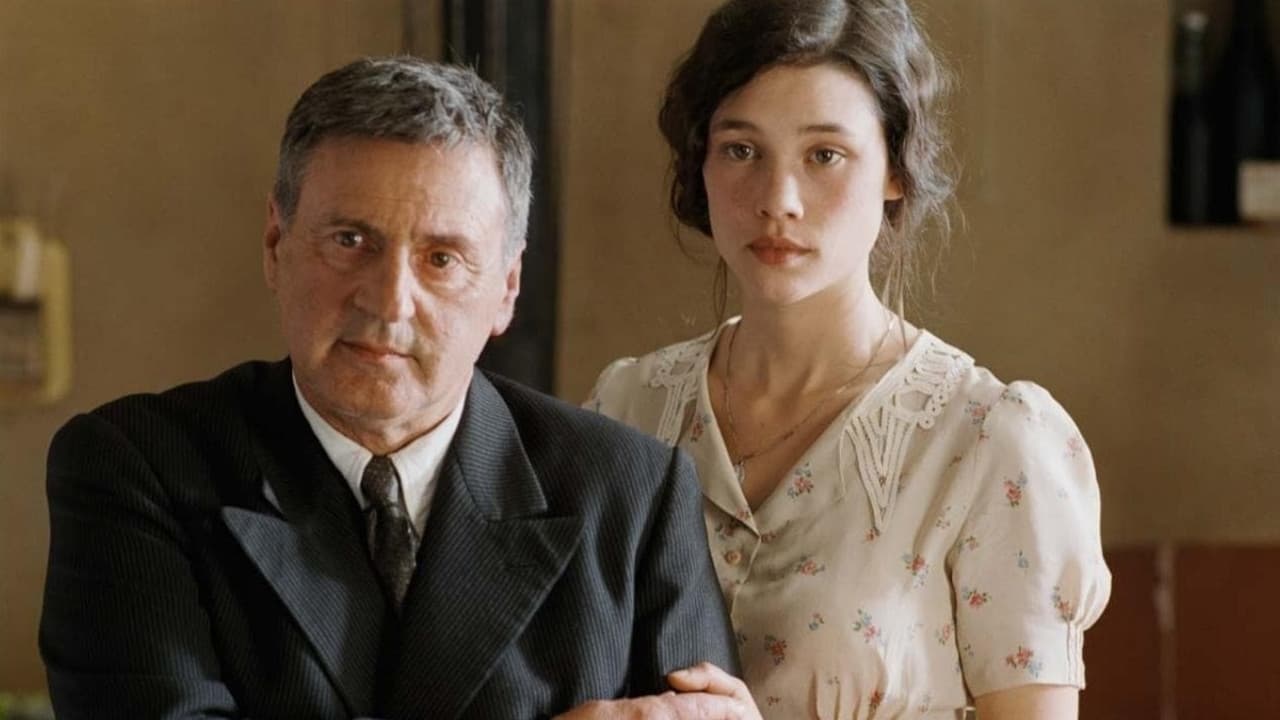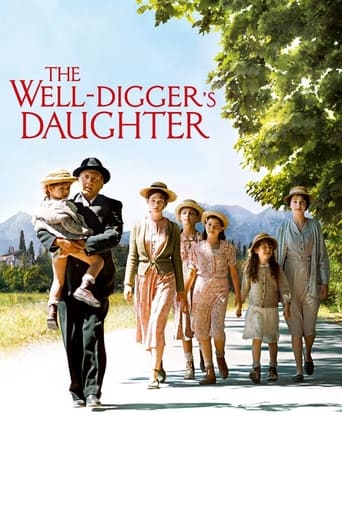



I think this is a new genre that they're all sort of working their way through it and haven't got all the kinks worked out yet but it's a genre that works for me.
View MoreAbsolutely amazing
I saw this movie before reading any reviews, and I thought it was very funny. I was very surprised to see the overwhelmingly negative reviews this film received from critics.
View MoreIt is encouraging that the film ends so strongly.Otherwise, it wouldn't have been a particularly memorable film
View MoreThis movie gave me the same elated, lighter than air feelings as Chaplin's "City Lights." It was amazing to see the film never dodge a single important factor in all the sordid repercussions of the titular woman's misdeeds. At the same time, I never felt like I was being dragged through emotional hell just for some theoretical catharsis. At times the film reminded me of a less block-headed and ham-fisted version of "Fiddler on the Roof" (also no singing Jews). Lastly, and most beautifully, the film offers up a shining example of the benign influence of a strong, loving father. It makes you remember the sort of picture of God that a father is supposed to be.
View MoreAnother reviewer has rightly pointed out that the title of this film in English is going to keep audiences away from the English-speaking cinemas in droves. But the original French title of which it is a translation, LA FILLE DU PUISATIER, had to be retained in France. That is because it is a remake of a famous and classic film of 1940 directed by Marcel Pagnol from his own novel, and thus it needed to have the same title, so that French people would know what it was. The screenplay adaptation of the remake is by Daniel Auteuil, who also directed the film and starred in it (playing the part of the well-digger). Auteuil, one of France's most famous actors, has a long history of association with Marcel Pagnol's tales of early 20th century Provence. Those who like French movies will certainly remember the pair of immensely popular films based on Pagnol novels which were directed by Claude Berri and starred Daniel Auteuil, JEAN DE FLORETTE and MANON DES SOURCES (both 1986). At the moment three further Pagnol remakes are being filmed, with Auteuil in the leading role of César, of Pagnol's famous trilogy of films, known as 'The Marseilles Trilogy'. The individual tiles of the trilogy are CÉSAR, FANNY, and MARIUS. Let us hope that a full-fledged Pagnol revival gets going, as the old films as well as the new are a pure delight. Credit for keeping the flame alive must go to Pagnol's remarkable daughter, whom I visited long ago in her office on the far side of the Periphérique. She is a powerful and determined personality and she kept the old Pagnol films in distribution and arranged for all the new ones to be made, and is a fierce guardian of the integrity and continuity of the family's creative flame. The Pagnol films are about 'real people' in the South of France, where Pagnol came from, and the thick accents in the Marseilles Trilogy are a marvel to the ear, and as different from Parisian French as a Mississippi drawl is from the speech of an inhabitant of Brooklyn, or as an impenetrable Glasgow accent is from the way they speak in London. This film is a pure delight, beautifully directed by Auteuil, and featuring as his eldest daughter (the one of the title) a fresh young actress of the utmost charm named Astrid Bergès-Frisbey, aged 25, who is part Spanish and as beautiful as a rose petal sparking with Provencal dew in the morning. The story allows her to have been sent away and educated in Paris, to explain why she does not speak like the locals. She is absolutely perfect casting, has all the right qualities for the part, and does a wonderful job. Auteuil is, as usual, superb. The rest of the cast are also excellent. This is a very poignant and emotional tale, as Pagnol stories usually are, and I would rate it as an instant classic. Everyone should see it, though outside of France, I wonder how many really will. It would be a shame for anyone who enjoys and looks forward to a superb French film to miss it, as this is in the top rank.
View MoreSuperficially this is chocolate-box romance. It is set in beautiful countryside in a world of constant summer. Even though it takes place over a year there is continuous warm sunshine.The story centres on the well-digger, Pascal: the daughter, Patricia, is a cipher, without personality, with no voice, and seemingly incapable of independent action. Does anyone really want to see this kind of woman in fiction or in life? Pascal is well-drawn; he is self-centred, a martinet, a hypocrite, unwilling to listen to anyone, and actually rather stupid. He is also crude- he comments on his dead wife's sexuality to his employee.At the opening of the film the daughter is described as universally liked because of her kindness. Of course she is kind. She is looking for affection and love after being sent from her home and mother at a very young age. You can imagine Pascal forcing his wife to accept this- 'in the interests of the child' of course. If the baby had been a boy... The daughter is only allowed back because circumstances force her return.How to explain her easy seduction by an unsuitable youth after one brief meeting? Obviously she is looking for love at any cost.Pascal tries to reach a deal with the youth's parents. No chance. He immediately disowns her. He casts her out (Victorian tyrant!) and only pretends to kiss her goodbye to deceive his other daughters. Yet it would have been better for everyone is she had stayed at home.Months pass. Still summer though! He destroys unread a letter from her. Then he goes to visit her. The first thing he does is to pretend to drown the baby. What a joke! This terrifies her, but she says nothing, and he shows no shame at his cruel stupidity.He soon wants to take over the baby (because it is a longed-for boy, presumably). She accepts this. She is a doormat throughout.The youth has made only one very feeble attempt to find the girl. Yet they agree to get married. Only after he has been killed in a blazing plane and found alive unharmed. What a load of rubbish.At the altar he says he doesn't want to marry. Only a joke! She believes him, but no recrimination from her for his brutal insensitivity.There are equally daft subplots, for example with the second daughter having an unaccountable passion for the daughter's castoff. This reults in an off-on-off probably-on relationship.It is well acted throughout. And it is pretty.Incidentally there is a war on, but everyone ignores it.
View MoreI am totally satisfied with this choice. It's one of the best french movies from last year. It tells a wonderful story in the very nice Provence from South of France. It's about ethical family values for father Amoretti and his children. The dialogs have great quality and let me reflect from begin to the end. It was never boring because I felt lot of emotions with the plot. Then the performance and direction from Daniel Auteuil was one of the best I have seen so far. Congratulations to the author Marcel Pagnol for this novel. Astrid Bergès-Frisbey played very respectable the role of the daughter Amoretti. The young pilot didn't convince me because his character was portrayed here too clunky and his voice heard inappropriate. The film shows very nice pictures from this beautiful region. For all these reasons it deserves a solid 9/10. Don't miss it, you won't regret. I will add it to my best of DVD collection. Don't miss the great thriller 36 QUAI DES ORFÈVRES with Daniel Auteuil.
View More